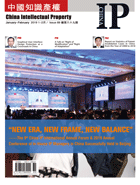The Forum of China IP Management Trend aims to interpret the hot spots, trends and patterns related to the administration, legislation and justice of IP rights in China in 2018, to predict the new trends in the development of IP rights in China in 2019, and to seek a new balance between administration and judicial protection of IP rights in China. Zhou Yan, Secretary-General of the China IP Development Alliance, presided over the meeting.
Yang Boyong,Chief Judge of Civil Adjudication Tribunal No.3 (IPR Division) of Beijing Higher People's Court first summed up the two characteristics of IP trials in Beijing courts in 2018. One is that the number of IP cases has reached a new high and the hot and difficult case emerged in endlessly. And the other is that after the establishment of the Beijing Internet Court and the IP court of the Supreme People’s Court, the trial pattern has undergone major changes. He said that in order to better play the leading role of the judiciary, the Beijing Higher People's Court has taken various measures to create a four-in- one linkage protection mechanism to comprehensively strengthen the protection of IP rights, and made the corresponding measures from four aspects: protecting scientific and technological innovation, protecting cultural creativity, optimizing the business environment and increasing the amount of compensation.
Professor Huang Yong, Member of the Expert Advisory Group of the Anti-monopoly Committee of the State Council and Chairman of the Competition Law Center of the University of International Business and Economics put forward new thinking on the relationship between IP protection and anti-monopoly from the view of scholars. He believes that the relationship between anti-monopoly and IP rights is not just a legal issue. In the present world situation, we should consider the relationship between the two from international and industrial perspectives. On this basis, we should consider legal theory, practice and law enforcement standards, and should also consider how to determine the relationship and rules between the two according to the industrial development in practice in China. In order to coordinate and solve the problem of the intersection of IP and anti-monopoly law, we must realize it by professional means.
Hu Huiji, Legal Director of the Legal Department of iQIYI emphatically discussed the relationship between technological innovation and IP protection from the current hot issues of artificial intelligence, blockchain, big data and data protection, as well as short video copyright. He believes that technological innovation will lead to a lot of IP disputes, but it will bring a lot of advantages in IP protection at the same time. The two are in constant change. In the new era, whether it is a new pattern of technological innovation or a new pattern of IP protection, they constantly produce a dynamic balance.
Li Yanhua, Director of Patent, IP and Licensing Department of Ericsson (China) Communications Co., LTD. shared a hot topic in communications technology, namely, the necessary patent for 5G standards. She believes that to promote the 5G standard and make it more conducive to social progress, it is essential to ensure that innovators receive a reasonable return because it is the only way to ensure that sufficient, sustained innovation continues to emerge.
Jiang Danming, Executive Vice President of Chofn IP, expressed his personal opinion on whether IP Law should be incorporated into the Civil Code. As to whether or not the Civil Code incorporates IP Law, and if so, how to incorporate them, as well as how to write IP rights is also a topic of great concern to the IP community. he thinks that IP Law should not be included in the Civil Code, expounds six main reasons, and expressed the theory of the "minority" voice.
Ma Yufeng, Chief representative of Shanghai Branch of Orrick Herrington & Sutcliffe spoke about IP issues in the context of the Sino-US trade war and some new developments in the United States patent litigation over the past year. He believes that the ban on ZTE in 2018 and the event of Ms. Meng in Huawei are only the beginning. In the future, there will be more cases against Chinese companies in the United States. Chinese companies should pay close attention to the progress of the Fairchild case. Once the boundaries of direct infringement are broken, the amount of compensation faced by Chinese companies will increase substantially.
Finally, Song Jianfu, General Manager of CPA Global (China), believed that the three most important things in the work of enterprise IPR are: improving the efficiency of daily routine work, highly supporting the company's business strategy, and reducing the risk of infringement and litigation. For this reason, he recommended to IPR a platform tool called The IP Platform which integrates all kinds of related APP. The platform enables data interconnection and helps developers and decision makers to get important information quickly.




